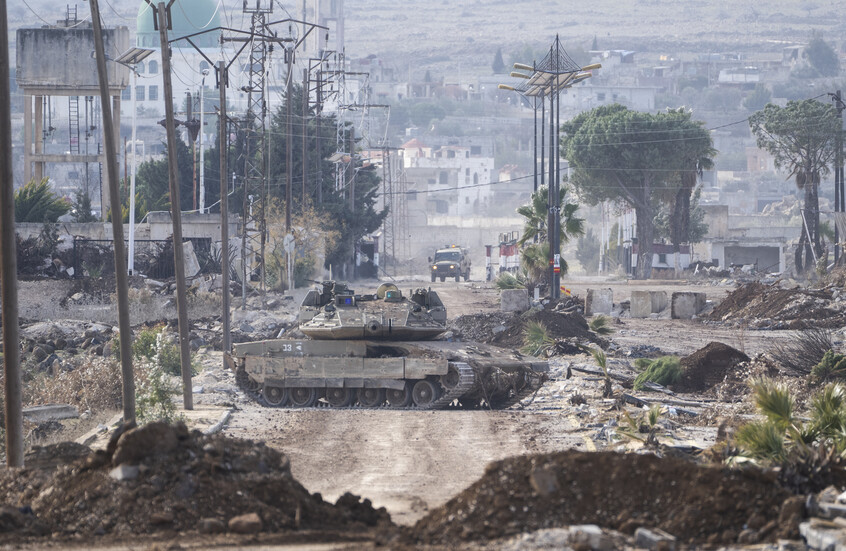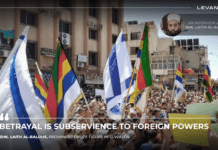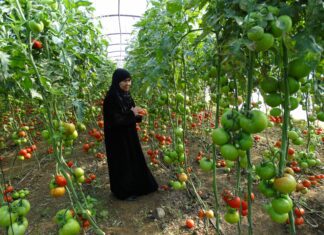
Israel has intensified its military operations in southern Syria, conducting incursions, arrests, and land seizures in the buffer zone and beyond, while Syrian officials struggle to respond in the wake of nearly 14 years of war. The latest escalation highlights Israel’s continued aggression against Syria and its people, as well as its ongoing illegal occupation of Syrian territory.
“Clashes” in Quneitra
Late Friday evening, the Israeli occupation reportedly came under fire in the village of Taranja in the Quneitra countryside, according to the Israeli army radio. The source claimed “five gunmen” opened fire on soldiers stationed north of the buffer zone and that Israelis returned fire without suffering casualties.
However, according to Syria TV, a young man opened fire on occupation forces while resisting an Israeli attempt to abduct him from the village of Taranja, rural Quneitra, contrary to the Israeli claims of an “armed group.”
Incursion into Taranja & Ongoing Arrests
Shortly after the incident, occupation forces entered Taranja and arrested two Syrian civilians, identified as Kinan Bakr and Ali Hussein Bakr. According to reports from the Free Houran Gathering, Israeli troops fired live rounds and flares, randomly shooting at any moving target before withdrawing.
This incursion is part of a pattern of Israeli aggression in the region, with occupation forces conducting arbitrary arrests and targeting civilians in southern Syria under the pretext of maintaining security.
Expanding Land Grabs
In a further display of disregard for Syrian sovereignty, the Israeli occupation army continues to bulldoze large swaths of land in the Jabata al-Khashab Nature Reserve, an ecologically protected area in Quneitra. Satellite images released by BBC on January 21 show Israeli military construction more than 600 meters inside the demilitarized buffer zone, a violation of the 1974 Disengagement Agreement between Syria and Israel.
On January 27, residents of Quneitra and Daraa staged a protest against the Israeli occupation, seizing the opportunity to demand action from a visiting UN delegation. Protesters called on the UN to intervene, with one resident stating: “The occupation forces entered our agricultural lands and prevented us from cultivating them.”
Despite local resistance, Israeli Defense Minister Yisrael Katz has made it clear that Israeli troops will not withdraw from the occupied territories. “We will remain in Mount Hermon and the buffer zone indefinitely,” Katz announced, further entrenching Israel’s illegal occupation of Syrian land.
On January 30, Israeli forces set fire to the Quneitra Governorate building, further escalating their attacks on Syrian infrastructure. Weeks earlier, Al Jazeera released aerial footage showing Israeli troops stationed inside the building, using it as a military outpost.
Limited Options & International Inaction
The new Syrian administration has repeatedly condemned the Israeli incursions, stating that Israel’s justifications for aggression “ended with the fall of the previous regime and the withdrawal of its allies, Iran and Hezbollah.” However, Syria’s ability to respond remains severely restricted by its war-ravaged military and economic instability.
The United Nations Disengagement Observer Force (UNDOF) reaffirmed its commitment to monitoring Israeli violations but has taken no action beyond condemnation. Despite diplomatic outreach, Syria faces an uphill battle in securing international support.
While the UN opposes the Israeli incursions, US veto power prevents any Security Council action and the US remains silent on the incursions while claiming to “prevent Syria from becoming a base for international terrorism.” The EU has “expressed concerns” but is focused primarily on Syria’s internal transition rather than Israeli violations.
Meanwhile, responses from the Gulf States and Arab League have been mixed with some, like Qatar and Kuwait publicly voicing support for Syria’s sovereignty, while others have been hesitant to confront Israel over its actions.
Dr. Faisal Abbas Muhammad, an expert in international relations, noted that Syria’s new government has few avenues for immediate relief. “The best-case scenario for Syria is securing Gulf mediation, particularly from countries with official ties to Israel, such as the UAE,” he said.
For now, Israel remains entrenched in Syria, exploiting the country’s instability while facing little international pushback. The future of Syria’s southern territories remains uncertain, as Damascus weighs its next steps against a powerful adversary that shows no intention of retreating.








